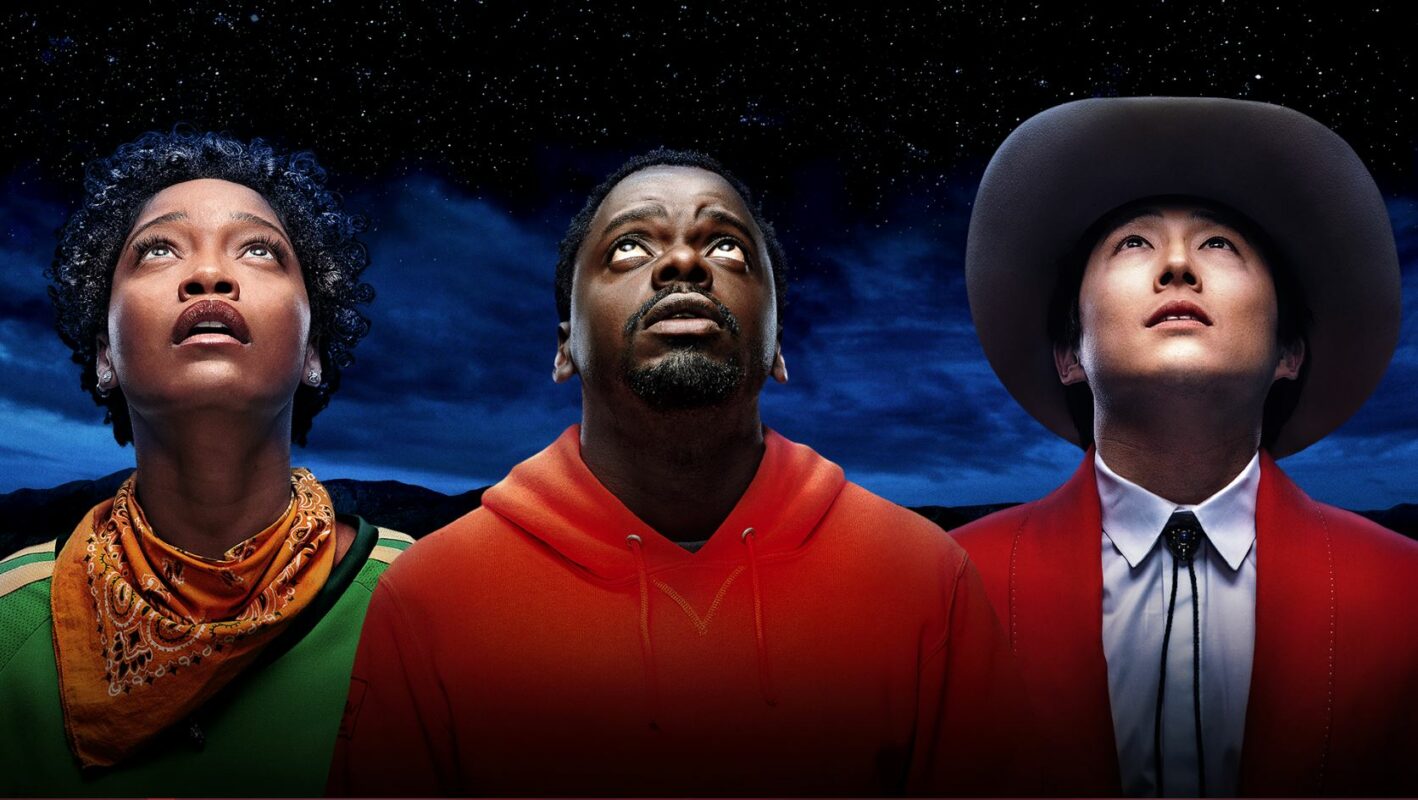Jordan Peele’s ‘Nope’: It’s Not Just Logan Paul. No One Is Absolved.
Nope, let's run it back and sit in it.

Last weekend, Jordan Peele’s third horror movie was finally released, and with that came discussions about the meaning and layers of the text. That meant if you wanted to engage and avoid spoilers, you had to be on high alert. I thought I was avoiding it pretty well until Logan Paul went viral, against my will, by talking about how the movie didn’t make sense. The wave of memes and replies of “It’s about people like you” made me more aware of the thematic elements before I saw the movie.
Spoilers for Jordan Peele’s NOPE.
While, after watching it, I completely understand where this sentiment comes from and will take any opportunity to dunk on Logan Paul for his gross insensitivity (especially regarding the Aokigahara scandal), I’m concerned about the way this conversation has absolved people from honest reflection by throwing all the blame on extreme examples like Logan Paul.
Let’s start with the message. Jordan Peele, in promotion of the film—which features a group of people trying to capture footage of a murderous UFO—has said he was inspired by the concept of bottlenecking. (I think he meant what’s commonly called rubber-necking, by the way he phrased it.) Using a big splashy summer movie, he took on the discussion of how “the spectacle” (even when it’s dangerous) has a grip on people, and within the story, everyone participates.
The audience may feel justified vindication when the TMZ employee gets their comeuppance in the film, understandable sadness when the visionary director dies for the perfect shot, surprise when the traumatized child actor continues this cycle of exploitation, and so on—and these are just the people with considerable screen time and high up on the billing. Dozens of others die, such as people at an amusement park, and many animals, too.
Human nature & the attention economy
Even the main characters of OJ (Daniel Kaluuya), Emerald (Keke Palmer), and supporting castmate Angel (Brandon Perea) engage with this fixation on spectacle, and no one is calling out people who are like them. Why? Because alongside Ricky “Jupe” Park (Steven Yeun), to a degree, we empathize with them. We learn a lot about the Haywoods and their family history through the movie. Even with Angel, although he’s kind of annoying, we quickly accept him as part of the group when we realize he’s avoiding processing struggles. All four of them are each are working through trauma and handling it very differently.
Logan Paul and others who engage with influencer antics that cross ethical lines and without reflection (like the TMZ character) are easy to point out, but everyone in the movie is trying to cash in on the dangerous alien because there’s an economic and social value in capturing footage of it. This value comes from (how PBS would put it) “viewers like you.” You and I both are culpable in this. Whether it’s engaging with bystander apathy or cashing in on the attention economy, we all engage with this directly or indirectly, whether we turn our noses up or not. We should still criticize it, and the worst examples of it, while understanding that humans engage with spectacle, and we aren’t above it. (In general, but I’m talking mostly about the nefarious stuff.)
That even goes for the Haywoods, where this footage could save them from financial bankruptcy after the recent loss of the patriarch. Other than the TMZ character, Emerald is the closest the movie even gets to bringing social media into the conversation (YouTube and “The Oprah Shot”), which is great. Like this Paul situation, it would have been a cop-out to put all the blame on social media. This is part of the reason I love the concept of mirrors in the movie and that they become a vital tool in defeating the UFO—not just because it’s a useful visual device for tension and because cameras use mirrors, but because introspection is vital, even if it startles us like it did Ghost at the start of the film.
(featured image: Universal Pictures)
—The Mary Sue has a strict comment policy that forbids, but is not limited to, personal insults toward anyone, hate speech, and trolling.—
Have a tip we should know? [email protected]
